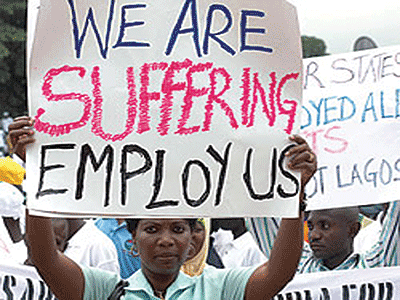Nigeria’s youth population, the largest in Africa, has long been described as the nation’s greatest asset. But rising unemployment, worsening insecurity, and systemic challenges are threatening their future, raising fears of a “lost generation” if urgent action is not taken.
Plan International Nigeria has raised the alarm, warning that nearly 80 million Nigerian youths remain unemployed while insecurity has forced the closure of more than 1,500 schools in the past two years.
The organisation made this known in a new document titled “State of the Nigerian Youth Report 2025,” presented in Abuja by its Advocacy and Youth Programme Officer, Jonathan Abakpa. The report, produced in partnership with ActionAid Nigeria and with input from policy and advocacy experts, was unveiled during the Nigerian Youth Dialogue held in commemoration of International Youth Day, organised by the House of Representatives Committee on Youth in Parliament.
According to Abakpa, the findings reveal that about one million children are currently out of school due to insecurity. He described the situation as troubling in a country where more than 60 per cent of the population is below the age of 30.
“With more than 200 million people and one of the largest youth populations in the world, Nigeria should be a powerhouse of innovation and growth. Instead, unemployment, poverty, insecurity, and poor infrastructure have left many young Nigerians without opportunities. Unless urgent action is taken, the country risks losing its greatest asset,” Abakpa said.
Rising Concerns
The report further disclosed that each year, about 1.7 million graduates leave Nigerian universities and other tertiary institutions, yet jobs remain scarce. It also highlighted how violence and armed conflicts have disrupted rural communities, claiming more than 77,000 lives in tribal clashes over the past five years and displacing around 2.6 million people, mostly from farming areas.
Experts say the implications are grave. A 2023 World Bank report had earlier warned that Nigeria’s unemployment crisis could fuel insecurity, deepen poverty, and trigger higher migration of skilled youths in search of opportunities abroad. UNICEF has also noted that persistent school closures are worsening Nigeria’s already high out-of-school children crisis, estimated at over 10 million.
Government Response
Meanwhile, the Special Adviser to the President on Media and Public Communications, Sunday Dare, urged youths to embrace available government initiatives designed to support them. Speaking to over 24,000 young Nigerians at the Arise Congress 2.0, themed “The Emergence of Champions” at the Baptist International Convention Centre along the Lagos-Ibadan Expressway, Dare described youths as the “champions of Tinubu’s administration.”
He pointed to several programmes aimed at youth empowerment, including the NELFUND tuition loans and stipends, the Renewed Hope conditional cash transfer scheme, and ongoing food security and poverty alleviation interventions.
“My message is not political but an appeal for youths to embrace available opportunities and transform their communities positively,” Dare said.
However, policy experts argue that while the government has rolled out several schemes, implementation gaps and corruption have limited their impact, leaving millions of young Nigerians still excluded.
Why It Matters
Analysts warn that if the crisis is not addressed, Nigeria could miss out on its much-touted “youth dividend.” A restless, unemployed youth population increases the risks of crime, armed recruitment by insurgents, and social unrest, while prolonged school closures endanger the country’s long-term human capital development.
Key Takeaways from the Report
-
Nearly 80 million Nigerian youths are unemployed.
-
Over 1,500 schools have been shut down in the last two years due to insecurity.
-
One million children are currently out of school.
-
About 1.7 million graduates enter the labour market yearly with limited opportunities.
-
Insecurity has claimed 77,000 lives and displaced 2.6 million people in the past five years.






















